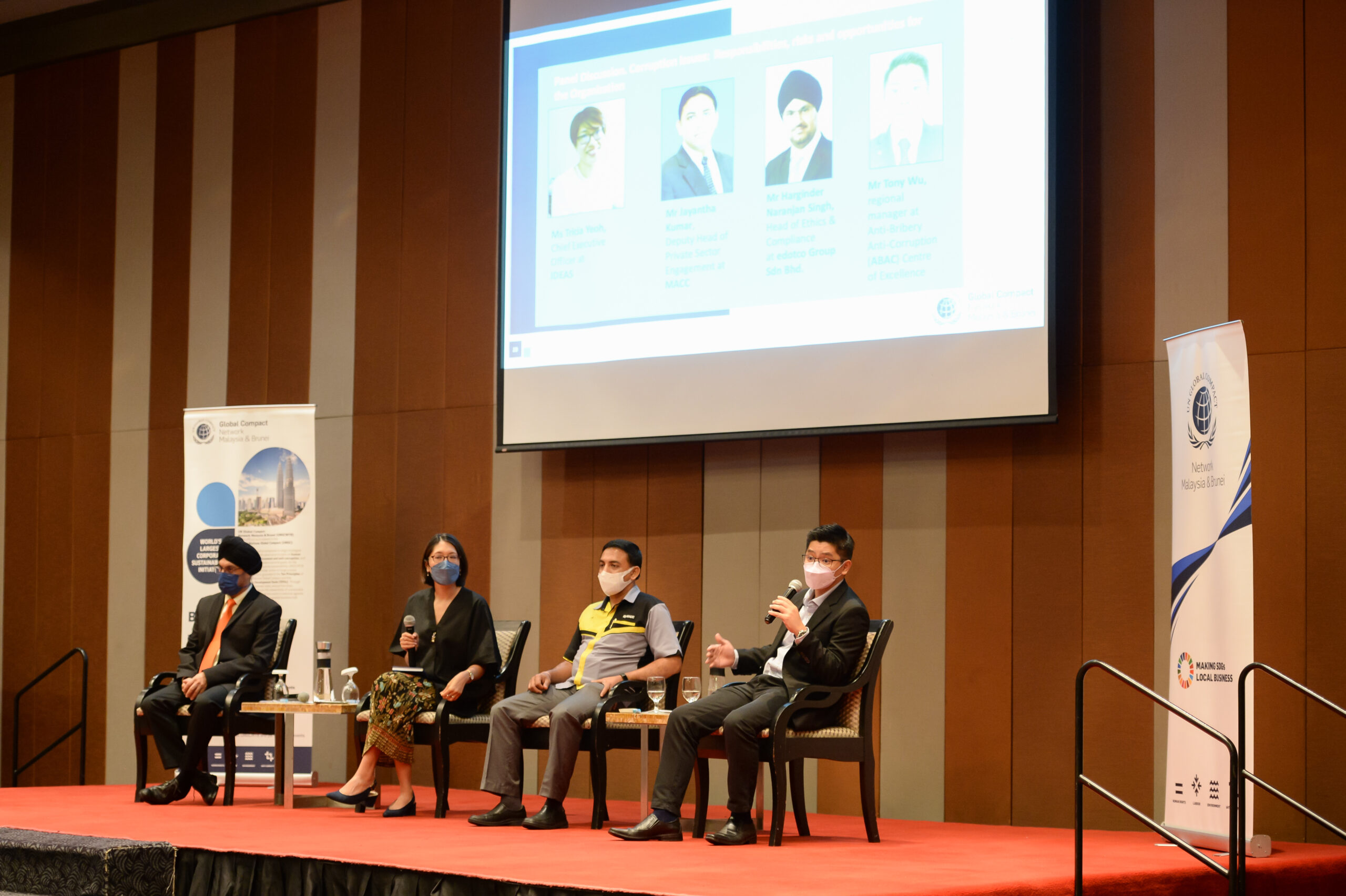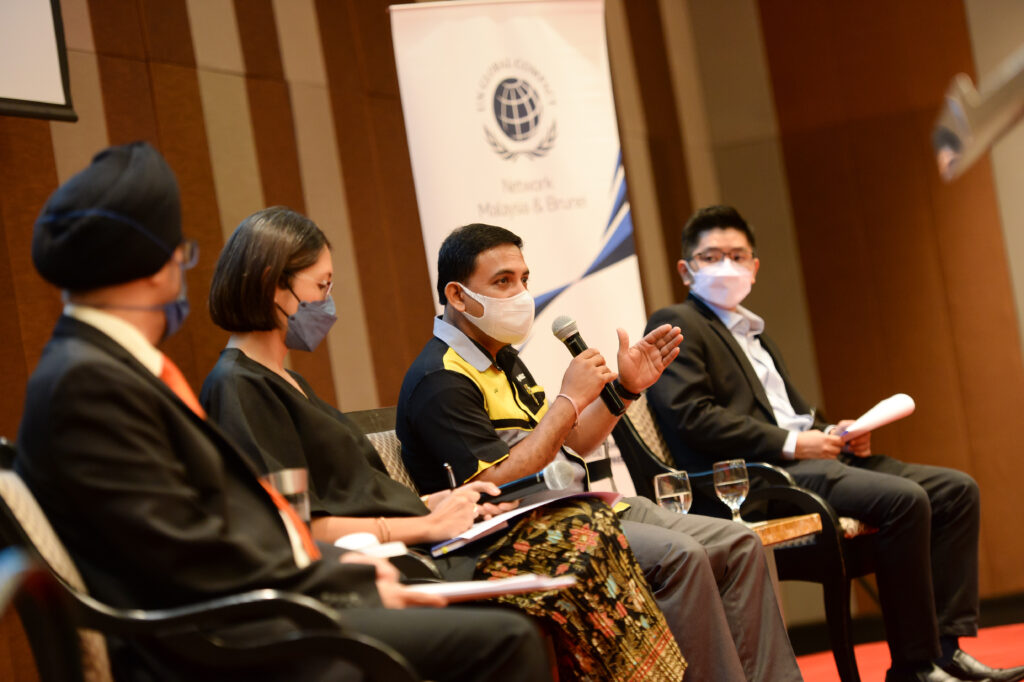
Malaysia, 5 April 2022- Corruption remains one of the greatest obstacles to economic and social development, and the Anti-Corruption Collective Action (“AC-CA”) workshops seeks to complement current corruption regulations by exploring bottom-up approaches that focuses on insight, communication, and collaboration.
A nationwide initiative by the UN Global Compact Network Malaysia & Brunei to actively educate the business community, this series of workshop has since been held in Johor (23rd Feb), Penang (17th March) and Kuching (24th March), with a 4th instalment at the Hilton, Petaling Jaya on March 31st. The workshops were attended by over one hundred participants from the private sector, including SMEs.

The workshop was also done in collaboration with the Malaysian Anti-Corruption Commission (MACC) who gave a presentation on anti-corruption laws including the MACC Section 17A, to help companies better understand the complexity of corruption.
Set as a three-year long project that will see the roll out of an anti-corruption action plan lead by the UNGCMYB, continued guidance and support will also be given to all AC-CA participants involved as they begin to develop and implement the anti-corruption action plans.
“SMEs are interested in joining their larger peers to align with current compliance requirements so they can become selected as suppliers. As SMEs might lack resources to have their own compliance policies and programs, joining the AC-CA initiative is a good way to start incorporating basic compliance elements into their businesses,” said Ms Shanta Dwarkasing, Director of Progams at UNGCMYB.
Sessions That Take The Search Within
Corruption diverts resources from where it’s needed most, and a critical part of the workshop is an analysis of business risks and opportunities. Businesses face complex corruption challenges on a daily basis and the inclusion of interactive sessions for constructive discussions is one way to begin identifying some of the key challenges and gaps that companies can focus to fill.
The workshop at the Hilton ended with such a session that saw a panel discussion on ‘Empowering the Private Sector in the fight against corruption: What are the Directors and Company’s responsibilities?’.
This was followed by a roundtable discussion to identify the opportunities for Anti-Corruption Collective Action, and to propose actions for the Anti-Corruption Collective Action roadmap.
Collective Action: Shifting The Vantage Point From Me To We
As defined by the World Bank Institute, ‘Collective Action’ is a collaborative and sustained process of cooperation between stakeholders. It increases the impact and credibility of individual action, brings vulnerable individual players into an alliance of like-minded organizations and levels the playing field between competitors.
Join The Collective Effort Against Corruption
With increasing access to information in the age of technology and hyper transparency, there is a growing concern for companies to show commitment, accountability and integrity.
For those interested to learn, develop and implement Anti-Corruption Collective Action initiatives within their own organization, do contact the UN Global Compact Network Malaysia & Brunei at the details below:














